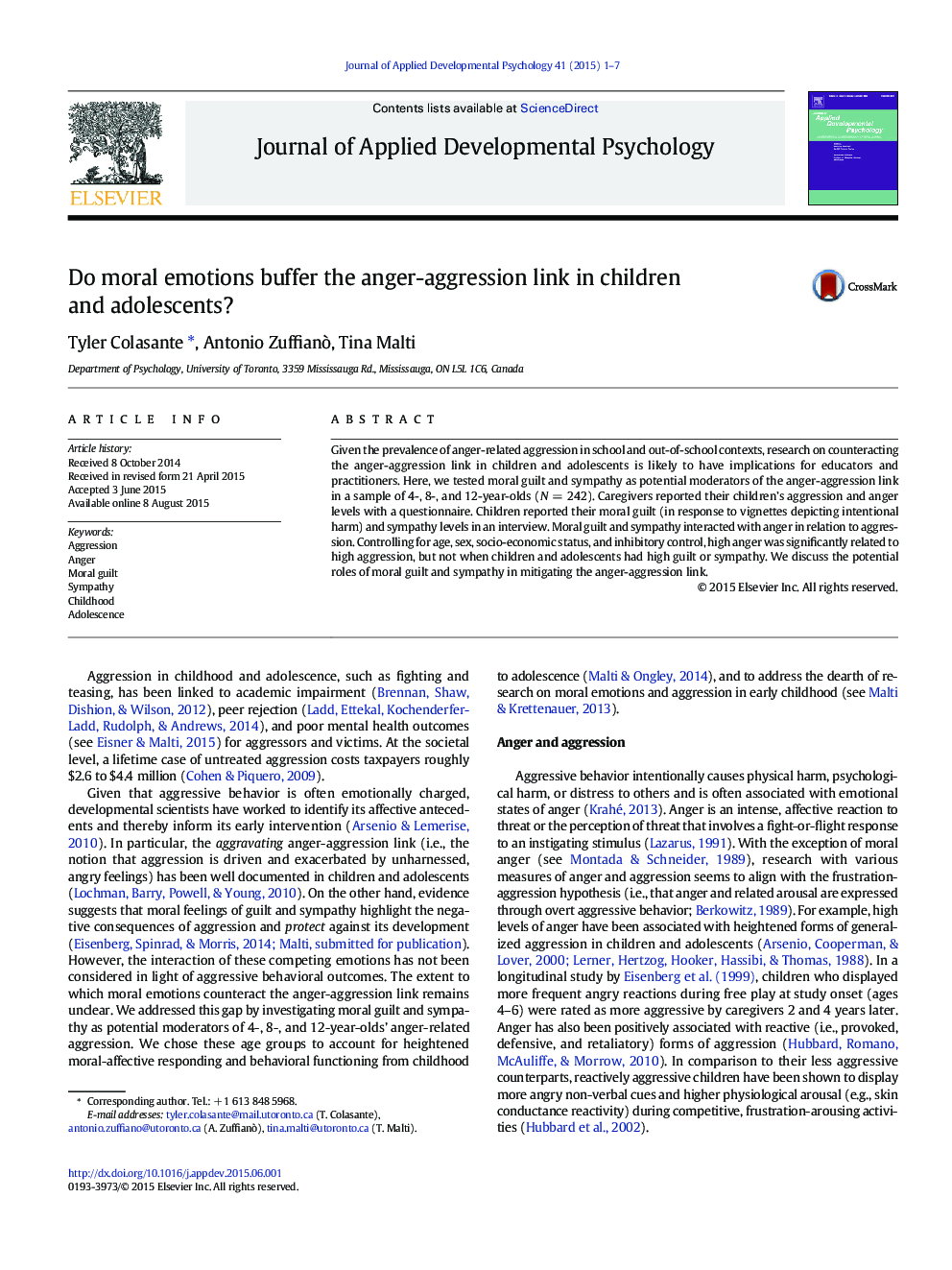| Article ID | Journal | Published Year | Pages | File Type |
|---|---|---|---|---|
| 359600 | Journal of Applied Developmental Psychology | 2015 | 7 Pages |
•High anger is linked to high aggression.•Having high guilt or high sympathy buffers the anger-aggression link.•Buffering effects are above and beyond regulatory skills.•Buffering effects are evident in 4-, 8-, and 12-year-olds.
Given the prevalence of anger-related aggression in school and out-of-school contexts, research on counteracting the anger-aggression link in children and adolescents is likely to have implications for educators and practitioners. Here, we tested moral guilt and sympathy as potential moderators of the anger-aggression link in a sample of 4-, 8-, and 12-year-olds (N = 242). Caregivers reported their children’s aggression and anger levels with a questionnaire. Children reported their moral guilt (in response to vignettes depicting intentional harm) and sympathy levels in an interview. Moral guilt and sympathy interacted with anger in relation to aggression. Controlling for age, sex, socio-economic status, and inhibitory control, high anger was significantly related to high aggression, but not when children and adolescents had high guilt or sympathy. We discuss the potential roles of moral guilt and sympathy in mitigating the anger-aggression link.
